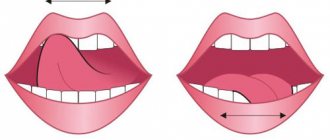Symptoms after prolonged stress
In order not to aggravate the damage caused to the body by stress, it is advisable to contact specialists and treat the consequences of nervous tension under their guidance.
But you can help yourself and reduce the load on the body, restore your nerves without the help of doctors. This will serve as a good prevention of the effects of stress or help cure them. There are many ways to recover from stress:
- proper nutrition;
- complete rest and relaxation during the day;
- physical activity;
- taking medications or folk remedies.
After emotional shock or prolonged nervous overload, symptoms of neurosis, depression, etc. manifest themselves in the form of uncontrollable outbursts of irritability and anger, constant anxiety and sleep disturbances.
Drug therapy is based on:
- sedative (calming) drugs;
- tranquilizers;
- herbal extracts (valerian drops, Novopassit, etc.);
- mineral and vitamin complexes.
Effective restoration of the conductivity of nerve fibers, the normal intensity of the processes of excitation and inhibition of the autonomic nervous system depends on the correct dosage of sedatives.
When the first signs of incipient neurosis, depression or VSD appear, you can independently use decoctions of medicinal herbs. The easiest way to do this is to buy ready-made tea at a pharmacy.
For a stimulating morning tea, take equal parts:
- St. John's wort herbs;
- coriander seeds;
- peppermint.
For brewing, take 1 tbsp. l. collection in 1 cup of boiling water and leave for 15-20 minutes (convenient in a teapot). If desired, you can add a slice of lemon or orange with peel to the tea: citrus essential oil stimulates the nervous system well. Jasmine also has a similar property. Drink the prepared tea in 2-3 doses until mid-day.
In the evening another collection will be useful:
- oregano or thyme;
- motherwort;
- valerian (root);
- hawthorn fruits.
The collection is prepared and stored in the same way as morning tea. For brewing, take 2 tbsp. l. 0.5 liters of boiling water and brew for 30 minutes in a thermos. You can drink ½ glass throughout the second half of the day. It is useful to drink a cup of tea 30 minutes before bed.
To stimulate the body after sleep, it is useful to do any set of morning exercises. If possible, take a few minutes during the day to do stress breathing exercises. It is useful to master diaphragmatic breathing, inhalation and exhalation techniques on a count. They will help you relax even at work.
Relaxation and rest
In order for an overtired brain to work with less load, it is important to alternate between work and rest. During intense mental work, it is advisable to switch to breathing exercises, a walk or simple exercises every 1 hour.
Proper nutrition
A diet to restore the nervous system after stress should include foods rich in nutrients:
- seafood and sea fish rich in Omega-3 fatty acids;
- liver and offal;
- buckwheat (contains a lot of magnesium);
- chicken meat (balanced vitamin and microelement complex);
- vegetables and fruits, seasonal greens.
The time it takes to bring the nerves into good condition requires different amounts of time, depending on the strength and duration of exposure to traumatic factors. You should not count on instant results when taking any medications or folk remedies. All methods of restoring nerves after severe stress require long-term use, and it is better to practice breathing techniques and physical exercises on a regular basis.
Nervous exhaustion is a neurotic disorder (neurosis), which, with timely detection of symptoms and proper treatment, quickly passes. Neurasthenia can be classified as nervous exhaustion. asthenia (neuropsychic impotence)…
The main signs of exhaustion of the nervous system are chronic fatigue, constant overwork, psychosomatic disorders, decreased performance, depression, etc.
To recover from nervous exhaustion, psychotherapy and psychoanalysis without medications are indicated, online (via Skype)…, for example, cognitive psychotherapy. rational psychotherapy. Gestalt therapy. psychoanalytic therapy, transactional analysis. as well as psychological trainings and exercises.
Neuro-emotional fatigue. Many people still don't even consider this a fact worthy of attention. They say about such a person “just tired,” and all health problems are attributed to fatigue. Meanwhile, this is a rather serious condition that can lead to very unpleasant consequences.
The International Classification of Diseases (ICD-10) distinguishes two types of nervous exhaustion:
- Exhaustion due to prolonged exposure to unfavorable conditions.
- Exhaustion due to excessive exertion.
The “emergency reserve” of nutritional, immune, hormonal resources created by the body “in case of emergency” is not infinite. Of course, a single stress is not capable of destroying the protective mechanism, but repeated shocks or physical overwork day after day will sooner or later lead to depletion of protective resources and exhaustion. Therefore, the name “nervous exhaustion” does not fully reflect the essence of the phenomenon. All body systems are exhausted.
All of us, modern women, are nervous at times and experience endless stress, both in our personal and professional lives. Such a phenomenon as nervous exhaustion is often inevitable. However, it is possible and necessary to work with this problem; if this is not done, the tension will only increase and lead to serious illnesses.
The woman who really knows how to properly, truly relax after a long day of work can easily lose numerous health problems or avoid another quarrel with loved ones. The first thing you need to understand is that everything arises from tension, which is to blame for all stress. After this, create a mental “image of relaxation”. Watch your actions, especially your intonation and facial expression.
Many of us, when stressed, are accustomed to frowning and tensing the muscles of our faces and bodies. Forget about this bad habit, because it creates a tense atmosphere and unfriendly thoughts. Try to “catch” the moment when tension increases and “breathe” it - take a few slow breaths in and out, purposefully relax all your muscles.
Absolute relaxation is a state where you are completely calm, both mentally and emotionally. To achieve complete mental relaxation, you need to do a small exercise: inhale, then exhale deeply and say to yourself: “I want to lose fear and tension. I am calm.
If you want to quickly get rid of your anger, you can shout, if it does not bother anyone, or beat a pillow with your fists. Some girls benefit greatly from jogging or intense training in the gym. Another non-standard method is general cleaning of the apartment while listening to loud music.
Another proven method is sleep. And to make it deeper and calmer, give up a heavy dinner. You should be surrounded by as little external stimuli as possible, and the conditions should be extremely comfortable. When you fall asleep, think about something pleasant, for example, how you are walking through a green forest, and birds are singing around you and a stream is rustling.
In classical yoga, there is even a special pose for relaxation - the “Shavasana” pose. Lie down as comfortably as possible on a flat, hard surface, place your arms along your torso, spread your legs slightly and keep your fingers bent, slightly open your mouth and place your head to one side. Breathe deeply and slowly.
When you inhale, inflate your stomach first, then fill your chest with air. Exhale in reverse order. After some time in this position, you will completely relax the muscles of your limbs. After this, mentally walk through all parts of the body, including internal organs, and try to relax them. Close your eyes and imagine a blue sky above you. You will feel completely relaxed and then fall asleep.
Physical exercise is also a good help. An excellent option is any type of active sport or dancing. Due to these activities, the level of certain hormones in the body will increase, as a result of which the mood will significantly improve.
MORE: Protective functions of the sympathoadrenal system. Sympathoadrenal system How does activation of the sympathoadrenal system affect inflammation?
Drawing or another type of creativity (knitting, beading, embroidery, etc.) is guaranteed to keep you busy for a long time, make you immerse yourself in the process, and distract you from the stress and tension accumulated during the day.
General recommendations for restoring the central nervous system
For many years, people were assured that nerve cells were completely irreparable. Recently it became known that the cells of the central nervous system regenerate, but much more slowly than the cells of other organ systems. What helps you find peace of mind? The regeneration process is stimulated by the production of endorphins - happiness hormones, which are produced in the neurons of the brain when a person receives positive emotions.
To restore the nervous system and not fall into a state of depression in conditions of increased activity, you need to follow a number of simple rules.
- Adjust your sleep pattern.
- Organize a healthy diet.
- Spend at least 1 hour a day in the fresh air.
- Get yourself in order (change your image, take a relaxing bath, get a massage).
- Come up with a hobby for yourself that will bring you pleasure.
- Look for positive aspects in any situation.
But it is important to remember that all this will not be enough. Men and women recover from depression differently. Or, for example, a person who is constantly in a stressful situation due to an unloved job will need quality rest to recover.
When wondering how to restore the nervous system and psyche in a short time, you need to understand that the whole body needs to be treated.
Many people prefer folk remedies instead of sedatives. Herbal infusions not only help the nerves recover after a stressful situation, but also have a beneficial effect on all organ systems.
Walking in the fresh air and an interesting hobby will help relieve stress.
Recovery after prolonged psychological stress
The recovery period after prolonged stress can take a long time. Even the most effective drugs cannot quickly relieve a person of his worries. Almost all sedatives have a cumulative effect, so a noticeable effect will appear after at least 1 month, or even more, depending on the severity of the symptoms of nervous shock. Stress has the greatest impact on the psyche.
While the medications are taking effect, your physical condition may also worsen. First of all, the consequences of long-term stress and depression are reflected in a person’s behavior and character. He may begin to show open aggression towards his family or, conversely, withdraw into himself and fall into an apathetic state. Relationships with others are an important aspect of any person’s life; the inability to maintain normal relationships in society can lead to fatal consequences.
How to restore your nerves after prolonged stress at home? One of the most effective methods is adequate physical activity. A person must put his negative energy somewhere.
No person can get rid of obsessive thoughts about problems. In this case, you need to make sure that the brain is distracted by another task. The activity of think tanks is comparable to the operation of a computer: when a certain program is specified, all resources are directed to it. At the initial stage, there is only one active unit in the brain centers, which returns thoughts to the problem every time. As physical activity increases, another point of activity appears that controls muscle function. At this time, endorphins begin to be actively produced, which help the body recover from stress.
Restoration of organ systems
When deciding how to restore nerves after severe stress, you should pay attention to organ systems that suffer from constant stress. First of all, these are the adrenal glands, which release a large amount of hormones into the blood, having received a signal to action from the central nervous system. As a result, the organ becomes depleted and its functionality decreases.
If you do not help him recover, irreversible changes may occur in the body. At first, adrenal exhaustion manifests itself as chronic fatigue. Poor health persists even after prolonged sleep. The main symptoms of adrenal dysfunction:
- neuroses,
- panic attacks,
- anxiety,
- nausea,
- increased sweating,
- tremor of the limbs.
To maintain the functioning of the organ, herbal preparations are prescribed - adaptogens, as well as vitamin complexes containing omega-3 fatty acids, B1-B12, C. To find peace of mind, you should reconsider your attitude towards life and begin to perceive the world differently. In many ways, people screw themselves up, drawing non-existent problems in their subconscious.
Panic attacks, a symptom of adrenal problems
Nervous exhaustion, symptoms, how to recover
By following simple recommendations, you will be able to quickly help your nervous system recover.
- Normalize your sleep. Ensure yourself a healthy and complete sleep; to do this, do not overtire yourself during the day. Eat a light dinner about 3 hours before bed. Make sure there is fresh air in the room and your bed is comfortable. Sleep at least 8 hours per day.
- Healthy eating. Eat 4-5 times a day, in small portions. Make sure that your diet contains foods that contain various and necessary substances and elements. Minimize consumption of fast food, soda and carcinogens.
- Walks. Take regular walks in parks and nature. Fresh air and physical activity are effective helpers in the fight against stress.
- Positive. Learn to look for positive aspects in all situations and not take negative ones to heart.
- Hobby. Find something that brings you positive emotions and do it for a small amount of time every day.
- Change of activity. During the day, alternate mental stress with physical stress and be sure to rest at least a little.
- Be kind to yourself. For example, if you feel like your nerves are on edge, take a vacation or a day off, don’t think about anything, forget about your phone, get some sleep and rest.
- ulcer;
- neurosis;
- atherosclerosis;
- eczema;
- diabetes;
- oncology;
- digestive disorders;
- asthma;
- impotence, etc.
The listed problems are only the most common - the list of diseases that arise after prolonged stress can be continued for a very long time. But what is more significant is not the information describing the list of possible complications, but recommendations on actions that allow you to recover from prolonged stress.
Recommendations for effective recovery of the nervous system First of all, experts strongly recommend visiting a psychotherapist - his support will help you recover much faster and more effectively. Many patients ignore this need and try to restore the nervous system on their own, using all kinds of pills and even psychotropic drugs. You can't do this.
Firstly, uncontrolled treatment can only worsen the situation. Secondly, not every stress is depression, and it is much more advisable to begin the fight against a depressed state by using more gentle methods and less serious medications.
To minimize the harmful effects of stress, do the following:
- be a physically active person. You can engage in absolutely any sport that brings you pleasure and that you like. If you don’t have time for full-fledged training, at least do exercises at home and walk more;
- watch more comedy films and TV shows rather than melodramas and crime chronicles;
- get a pet;
- eat foods that improve the functioning of the nervous system and brain;
- change the situation. In any way: meet friends and relatives, go somewhere, etc.;
- find a hobby you like and devote more time to it;
- try yoga;
- listen to encouraging music;
- Get enough sleep and stick to a sleep and rest schedule.
But the first thing you must do is get rid of the reasons that led to stress. If these factors are beyond your control, try to adjust yourself to a less critical attitude towards them, do not overload your nervous system and be more positive.
What processes occur after a nervous shock? How to stop them and restore health after a stressful situation? About this in this article.
The first thing that is important to know is that the effects of some types of nervous disorders can be reversed immediately after exposure. A number of consequences can be quickly compensated for using simple techniques (see below). Restoring other health problems requires time and the use of special means.
- heart and blood vessels: heart pain, heart attack, stroke, ischemia;
- digestion: ulcer, gastritis, colitis;
- nervous system: neuroses, sleep disturbances, etc.
- immunity: frequent colds, infection with parasites;
- hormonal imbalance: delayed menstruation, discharge in women and decreased potency in men.
After severe stress, the condition of hair and skin worsens.
- threat to life or health - to oneself or loved ones (attack by hooligans, accident, attack of illness...);
- sudden material loss, or its threat (theft, loss of money, dismissal);
- conflict with superiors, family quarrel, etc.
Chronic stress is caused by long-term factors:
- threat of dismissal
- being overly busy;
- information overload;
- prolonged conflict at home or at work;
- constant lack of time for current affairs;
- a stressful state before an upcoming dangerous event - surgery, parachute jump, etc.;
- loss of the meaning of work, guidelines in life
These two types of stress are fundamentally different in their physiology. The means of compensation also differ.
Symptoms of chronic stress:
- At the physiological level, these are belching, nausea, loss of appetite, bruxism, itching and eczema, weight loss or gain, tics or obsessive movements, various pains, hot or cold flashes, decreased libido.
- In emotional terms - decreased self-esteem, moodiness, tearfulness, irritability, sleep disturbance and sleep behavior (nightmares), anxiety, resentment, memory impairment, thoughts of suicide.
Sleep disturbance is one of the symptoms of long-term stress
- Social and behavioral signs are loss of interest in the outside world, desire to isolate from others, conflict, nervous laughter, desire to “go away” to work.
- Intellectual signs - memory impairment, repetition of what was said earlier, slurred speech, obsessive negative thoughts.
Something does not work? Inhale, exhale, smile. If the matter can be postponed until later, return to it a little later with renewed vigor.
The problem is well known not only to city residents, but to any modern person. To establish how to restore a weakened nervous system and psyche, it is necessary to accurately identify the causes. Desire alone is not enough. The procedure must be consistent: identifying the cause, choosing a treatment method, following the adopted strategy step by step. This is the only way to answer the question of how to restore the psyche and nervous system.
People often wonder whether it is possible to restore the psyche and nervous system on their own, because this is quite difficult, and many people even experience a nervous breakdown. If each of us knows exactly how to harm ourselves (and others), then returning everything to normal is much more difficult. Of course, a psychotherapist or psychiatrist has professional experience and sufficient knowledge in this regard, and has all the modern methods.
You can do it differently - try to cope on your own. If you have at least basic knowledge of how to restore a shattered nervous system, it’s worth a try. At this stage, it is very important not to isolate yourself and be sure to take into account the opinions of others (friends, relatives, colleagues, acquaintances).
The autonomic nervous system is responsible for a number of important processes in our body: metabolism, maintaining body temperature, circadian rhythms (sleep-wake), digestion, etc. Disorders manifest themselves in different ways: allergies, diseases of the digestive system, neurosis, vegetative-vascular dystonia.
The leading symptoms of nervous exhaustion are:
- Headache.
- Chills or fever.
- Absent-mindedness.
- Chronic fatigue.
- Pressure surges.
- Nervous trembling of fingers.
- Dyspnea.
- Loss of strength after sleep.
These symptoms are the first signs of more serious diseases. It is very important to know how to restore the autonomic nervous system at the earliest stages. Only mild disorders can go away on their own when the cause that caused them disappears. For example, stress is caused by an inspection at an enterprise. Upon completion, the irritating factor disappears and the nervous system returns to normal.
READ MORE: How to cure a sore throat quickly
It’s another matter how to restore the functioning of the autonomic nervous system when the cause cannot be eliminated so easily. Deterioration in health can take the form of attacks very similar to heart attacks. In such cases, an ambulance is often called. The diagnosis is usually the same: vegetative-vascular dystonia. The condition can be aggravated by many reasons: bad habits, injury, viral infection, serious stress.
It is important to know how to quickly restore the autonomic nervous system immediately after a failure, as well as in anticipation of future stress. The attack can be severe in the form of a panic attack or severe loss of strength. It is important to provide a person in this state with complete rest and sleep. It should be quiet around him, sources of noise removed, lights dimmed. Sometimes an urgent sedative is required.
If disturbances are accompanied by deterioration in well-being, the doctor must decide how to restore the central nervous system. You cannot make decisions about taking medications on your own. Only after studying the state of health, taking into account existing diseases, can one decide how to restore the parasympathetic nervous system in this particular case.
Preventive measures will benefit even a healthy person. Doctors recommend the following:
- Cold and hot shower. Once a day is enough. Improving blood circulation has a positive effect on the condition of the cardiovascular system.
- Replenishing the lack of vitamins and microelements. Consult your doctor about which complex to choose. After all, it is important to accept exactly what is missing.
- Relax regularly. The method of relieving negativity should be yours and your favorite: yoga, sex, putting together puzzles - whatever suits you.
- Dream. Even 1 hour a day less than the norm will have an increasing effect.
- To refuse from bad habits. Nicotine, alcohol, any drugs are an illusion of relief from stress; in reality, irreversible destruction of nerve cells occurs.
- Walks. Take every opportunity to be outdoors every day.
- Vacation. You can't do without weekends and vacations. A feat of labor will result in treatment costs and poor health.
Medicines
Vitamins and sedatives are needed after a nervous breakdown. Here a person needs therapy that can quickly restore peace of mind.
The tablets contain substances necessary for the nervous system in their pure form. Therefore, their effect is noticeable immediately. However, not all of them will help - a full examination is needed, and only then the doctor will be able to select medications.
Pentovit contains vitamin B - it is very necessary for the central nervous system. She requires A, C and E equally.
Drops are also useful:
- Zelenina,
- Valocordin,
- Valoserdin.
Excellent sedatives are:
- Persen,
- Glycine,
- Donormil,
- Afobazol.
It is better not to abuse chemicals. Is it possible to treat nerves using traditional methods? Certainly. We will talk about this below.
Exhaustion of the nervous system: how to recover
Many people are concerned about how to quickly recover with the help of medications. Depression, neuroses, and anxiety need to be treated comprehensively. There are situations when recovery is impossible without the use of special drugs, for example, when a person is mentally tortured for a long time.
- neuroleptics;
- antidepressants;
- tranquilizers;
- nootropics;
- normothimics;
- sedatives;
- CNS stimulants.
In each specific case, the doctor prescribes certain medications. Do not forget that it is necessary not only to treat the nervous system, but also to support other organ systems that suffer from constant stress. Most of the groups of drugs described above are used in advanced cases.
With the modern pace of life, the desire for success, especially in megacities, exhaustion of the nervous system can occur following manager syndrome (emotional burnout) in many people susceptible to “big city neurosis.”
Therefore, in order not to bring yourself, and if you have already brought yourself to the point of symptoms of nervous exhaustion, you need to know about preventive measures and how to recover if something happens...
Let's take a closer look at what are the symptoms of nervous exhaustion in the human body and how psychotherapeutic treatment of nervous system exhaustion is carried out.
If you have nervous exhaustion, the symptoms will be as follows:
- Irritation, anger for no particular reason, often over trifles...
- Low self-esteem and self-position in life
- Insomnia - a person falls asleep for a long time, “chasing” various thoughts and pictures in his head; and/or frequent waking up at night, restless sleep, sometimes with nightmares; waking up with a feeling of lack of sleep, fatigue, weakness...
- Periodic headaches, sometimes girdling pain (the so-called “neurasthenic helmet”)...
- Sexual disorders
- Loss of strength, apathy, depression, low tolerance to frustration, stress...
- Mental, mental fatigue, weakening of memory...
- Bad mood, spiritual emptiness, pessimism, no taste for life...
- A person with symptoms of nervous exhaustion becomes impatient with expectations, overly sensitive to external stimuli (lights, sounds, smells...), uncertain and indecisive...
- The behavior is passivity, doing nothing, laziness...self-digging...
If you have nervous exhaustion, treatment should be carried out comprehensively. First of all, you need to analyze and understand the original source of the problem, usually this is an intrapersonal conflict. scenario life attitudes (deep convictions, beliefs, stereotypical thinking), which provoke you to live and work to the point of exhaustion of the nervous system and the whole organism.
Then change your thinking. internal beliefs and convictions that unconsciously direct you to self-destruction.
Next, you need to immediately start a healthy lifestyle. proper balanced nutrition, vitamins, normal sleep, proper rest, at least two days in a row a week, morning and evening walks in the fresh air, psychological and physical training. Learn to manage your time. structure it correctly: work, rest, pastime...
Engage in morning and evening relaxation (relaxation of soul and body) in order to utilize internal negatives stored in the psyche and not worked out in a timely manner (resentment, guilt, anger..., feelings of injustice...), as well as to relieve tension, stress, depression...
Using positive affirmations for all occasions or self-hypnotic techniques, raise your self-esteem, making yourself more confident and decisive... Constantly motivate yourself to succeed without undue stress on the psyche and physiology, in order to avoid nervous exhaustion of the body in the future.
Are you experiencing symptoms of nervous exhaustion? Psychotherapist online - quick treatment and restoration of the body
Do you want to get rid of nervous system exhaustion and recover on your own? Order individual psychological training
Tip 7. Calm, just calm
Are you wondering whether to run straight to the doctor? When it comes to problems with the nervous system, medical help is not always necessary at the initial stage. If there are signs of weakened nerves, you can always cope with the problem yourself by changing your lifestyle and diet.
Do not forget that any medical sedatives have side effects, and treatment can lead to unpredictable results. But if you still think that your problem of how to strengthen the nervous system can be solved exclusively by a doctor, contact several specialists. Listen to different opinions, consult with everyone, analyze the prescribed treatment regimen and only then make a decision.
Remember that you should never take medical sedatives on your own without first consulting a specialist. Only he can assess how well a particular drug suits you based on a set of tests and the correlation of all the characteristics of your body with possible side effects.
Thus, the problem of frayed nerves and increased irritability does not initially require drastic measures. It can be solved quite easily if you change some habits and reconsider your lifestyle. However, it is important to take into account that in the intention to strengthen the nervous system with folk remedies, the most important parameter is systematicity. Perhaps the effect will not be as fast as when taking medications, but it will be long-term and, most importantly, safe.
Development mechanism
- Exhaustion of the nervous system develops as a result of prolonged functioning in a stressful mode, when, in a state of stress, the central nervous system intensely sends impulses to the organs of the cardiovascular, endocrine, and immune systems (since in a state of stress, the work of these systems is a priority); as a result, other systems of the body may suffer if left without proper attention.
- Depletion of the endocrine system occurs as a result of failure after constant overstimulation under stress. The result is disturbances in the functioning of the thyroid and pancreas glands, adrenal glands, and ovaries.
- Exhaustion of the cardiovascular system is manifested primarily by instability of heart rate and blood pressure.
- The immune system protects our body from infectious and inflammatory processes; prolonged stress causes depletion of the immune system, and at the same time, a persistent exacerbation of chronic diseases, the emergence of new ones, such as candidal lesions, dysbacteriosis, skin diseases, autoimmune lesions.
- From the gastrointestinal tract, the most typical occurrence is dysbacteriosis and ulcerative lesions of the stomach and duodenum, irritable bowel syndrome.
How to suspect and recognize nervous exhaustion?
At first, it looks like normal everyday fatigue. therefore, the onset of the disease usually goes unnoticed. However, sooner or later this condition turns into a serious pathology, which can only be overcome with the help of a specialist.
- continuous, persistent feeling of fatigue;
- sleep disorder: sometimes the patient cannot fall asleep in the evenings, despite drowsiness during the day;
- unreasonable anxiety, pessimistic mood;
- instability of blood pressure, periodically - a feeling of palpitations;
- hypersensitivity to external stimuli (loud sounds, intense light, strong odors);
- frequent headaches;
- pain in the back and limbs, the origin of which cannot be determined;
- unreasonable increase in body temperature;
- discomfort from the gastrointestinal tract;
- non-seasonal exacerbations of chronic inflammatory processes.
The disease also has features that the patient’s relatives can pay attention to:
- irritability; both in relation to loved ones and the environment, and to oneself;
- pronounced impatience; the patient cannot stand being forced to wait;
- increased sensitivity to external stimuli (flashes of light, sounds, smells);
- restless sleep: a person often wakes up from nightmares, is restless in his sleep, does not get enough sleep;
- the occurrence of fatigue, weakness and headache even with slight exertion;
- changes in character: uncertainty appears, self-esteem decreases;
- disorders in the sexual sphere: decreased libido, impotence;
- absent-mindedness, inattention, decreased memory and concentration;
- a person tries to take on several things at once, but cannot complete anything;
- fluctuations in appetite and weight;
- constant, persistent bad mood.
READ MORE: How to relieve irritation after shaving in the intimate area
The clinical picture of this disease can be divided into three main stages:
- Stage of hyperesthesia. Fussiness and irritability are noted. The patient is aware that something is happening to him, but cannot cope with it; sometimes, without controlling himself, he provokes quarrels and conflicts. There is a marked decrease in performance. Subjective: headaches and myalgia, lack of sleep combined with insomnia, weakness and lethargy.
- Stage of irritability and weakness. The patient is quick-tempered, but easy-going. thoughts are anxious and pessimistic. Among the subjective manifestations: headaches and muscle pain are accompanied by pain in the heart, discomfort from the gastrointestinal tract, shortness of breath, dizziness; Digestive disorders and allergic reactions appear.
- Hyposthesia stage. The patient loses interest in his surroundings and falls into apathy. Depressed mood, close to depression.
Proper nutrition
Nervous system disorders almost always affect appetite. The only difference is that some people completely lose interest in food, while others cannot stop, endlessly eating all sorts of goodies. First, you need to bring your appetite back to normal, and after that the recovery process will be much easier.
In general, this is just the beginning of a solution to the problem called “how to recover from stress.” The main thing is to choose the right foods in your daily diet that will help you calm down and restore the entire system. Basic rules for selecting products:
- The main enemies of the nervous system: alcohol and smoking. Completely give up these harmful unnecessary habits;
- Eat a lot of vegetables and fruits, either in the form of salads or on their own;
- Products containing Omega-3 have an excellent effect on overall health; pay special attention to them;
- Drink green tea 3-5 times a day, it contains special substances that promote rapid recovery of the nervous system;
- Give up sweets, replace them with bananas and dark chocolate, they kill the blues and lift your mood and positive attitude
How the body behaves
Nervous exhaustion causes a significant change in a person’s character and emotional reactions; This leads to the fact that a person who has suffered such a disorder often experiences complications of a social nature. Traits such as secrecy, isolation, and irritability appear.
A combination of physical and nervous exhaustion often accompanies so-called workaholics.
Complications
- disruptions in the functioning of the cardiovascular system
- instability of blood pressure with a tendency to hypertension;
- chronic migraines;
- insomnia;
- immunodeficiency;
- constant tension of the body's emotional resources, which can lead to unpredictable consequences.
Today it is not customary to openly show your emotions and aggression. Finding himself in an unusual situation, a person actively tries to restrain his anger, which is violence against the nervous system. During stress, the central nervous system sends a signal to the body, as a result of which all protective mechanisms are activated. The adrenal glands actively begin to produce adrenaline, corticoids, androgens and estrogens. As a result of stress, the following occurs:
- decreased libido;
- arrhythmia;
- headache;
- exacerbation of allergic reactions;
- exacerbation of chronic diseases;
- premature skin aging;
- neuroses, depression.
Causes of nervous diseases
Modern man faces many stress factors every day. Most often the reason lies in:
- too busy work schedule;
- household concerns;
- various problems in relationships;
- excessive use of the computer and various gadgets, as well as many other factors.
All this together leads to such unpleasant consequences as:
- chronic fatigue;
- increased irritability;
- absent-mindedness and forgetfulness;
- chronic insomnia, etc.
That is why it is very important to learn to minimize the impact of external factors on the psyche and nervous system. To do this, you need to follow a few simple tips.
Diagnostics
A person who notices signs of nervous exhaustion should consult a psychotherapist or psychiatrist. It is these specialists who diagnose and subsequently treat this condition. An important aspect will be differential diagnosis with other diseases that have similar symptoms.
The examination will be quite extensive:
- blood tests - general, biochemical, microelementary;
- study of hormonal levels;
- testing for blood levels of medications and drugs;
- serological and immunological tests;
- detailed urine analysis;
- ECG;
- EEG;
- blood pressure assessment;
- consultations with specialists: neurologist, endocrinologist, cardiologist, therapist, psychologist, reflexologist.
How to treat nervous exhaustion
Attempts at self-medication lead to irreversible phenomena such as depression and neurasthenia combined with irritability.
A comprehensive approach to treatment is required. For the success of treatment, it is necessary first of all to stop the impact of stress on the patient and create an environment conducive to recovery. The correct approach to treatment helps to reduce the severity of symptoms and the onset of recovery.
- the cause of the disorder should be identified and neutralized - conflicts in the family and at work will have to be eliminated, psychological trauma and stress must be avoided, perhaps take a vacation, change the environment;
- correctly organize the daily routine, observe the work and rest schedule, find time for both active recreation and relaxation;
- train yourself to fall asleep and wake up at the same time;
- Minimize caffeine consumption and eliminate alcohol;
- get into the habit of walking in the fresh air;
- establish regular nutrition, monitor the adequacy of the diet;
- establish regular sex life;
- rest regularly.
Pharmaceutical drugs should be used only as prescribed by a specialist. The following means can be used:
- vasodilators - to combat spasms and their consequences; they will restore cerebral blood flow and stop oxygen starvation of cells;
- means that activate metabolism - to restore damaged neurons;
- nootropic drugs - only under the supervision of a doctor, since along with positive effects they can, by stimulating the psyche, aggravate some symptoms;
- vitamin complexes; in the early stages they are able to completely correct and stabilize the patient’s condition. Vitamins B, A, D, E have a direct effect on the nervous system. Vitamins of group B are specific for the nervous system. B1 has an effect similar to antidepressants, B6 promotes the synthesis of serotonin; B12 prevents damage to nerve fibers; folic acid (B9) restores and controls energy metabolism; Thus, specific therapy for prolonged stress and its consequences would be B complex vitamins;
- sedatives (valerian, motherwort);
- according to indications, it is possible to prescribe benzodiazepine drugs, as they are able to suppress feelings of anxiety and fear, have relaxing and hypnotic effects;
- If there are signs of depression, antidepressants may be prescribed.
Why does nervous exhaustion occur?
Typically, depletion of a nervous property occurs due to any existing factor that weakens the nervous system. These factors include:
- various ailments, and especially chronic pathologies that can cause kidney failure and various types of infections;
- physical or mental fatigue;
- bad habits, unhealthy lifestyle;
- constant lack of sleep;
- life in a big city, constant background noise and fast pace of life;
- frequent stressful situations that exist both at home and at work.
Trips.
To normalize and balance your inner world, you can not just take a vacation, but go on a long-term trip to a place you have long wanted to visit. Best of all, to the sea or ocean. Water is the basis of life, and being on the coast, a person can cleanse himself spiritually and fill himself with new energy of life. Changing your place of residence, familiar surroundings, people around, food - all this will help a person feel himself in a new way and get out of depression.
We recommend that you read: Feeling of self-dislike: what is it?











